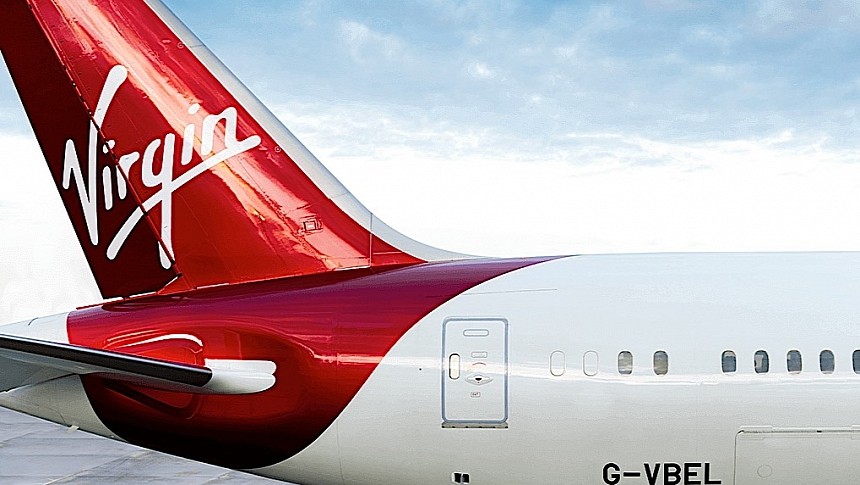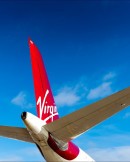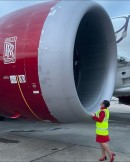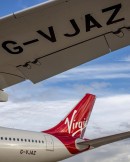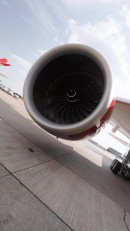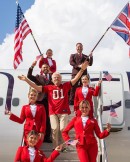Aviation is a kind of human activity that's 120 years old now. Throughout its life, it suffered many transformations, but none of them seem as deep and completely industry-altering as the ones it's going through right now.
As airplane makers, airlines, and everyone involved in the industry are chasing the still elusive dream of net zero operations (that's a complete balance between greenhouse gas emissions put into and removed from the atmosphere), the industry is now looking for new aircraft designs, new kinds of engines, and new fuels.
It's the new fuels part of that effort that's of interest to us today, as one of the most commonly researched types of fuel, SAF, is about to go through a major test at the end of the month.
SAF stands for Sustainable Aviation Fuel and it's basically a biofuel derived from plants or waste. Its use could help airlines cut down on both consumption and emissions, helping in the process with the greater goal of saving our planet from environmental doom. After all, unblended SAFs have proven to emit 80 percent fewer CO2 emissions over an engine's lifecycle compared to conventional fuel.
This type of fuel is still being in the process of being tested. For instance, one of the planet's largest makers of airplane engines, Roll-Royce, just announced it has completed compatibility testing of SAF on all its in-production civil aero engines, and the procedures showed the fuel works just as it should with the entire family of Trent powerplants, but also with the newer Pearl engines.
The tests, says Rolls, were conducted in such a way as to replicate in-service conditions, and the findings were the fuel does not affect in any way engine performance. Moreover, the tests prove "no engine technology barriers to the use of 100% SAF," thus becoming just another step toward the company's goal of becoming net zero by the middle of the century.
It's at the end of the month when SAF will get its true baptism. A Boeing 787 Dreamliner operated by Virgin Atlantic will take off on November 28 from London Heathrow and head for New York JFK in what will be the world's first transatlantic flight of such an airplane with 100 percent SAF in its tanks. The fuel will power the plane's Trent 1000 engines.
The fuel is a mixture of 88 percent hydroprocessed esters and fatty acids (HEFA) and 12 percent aromatic kerosene. The plane will use 60 tons of it for the trip.
The flight is a test run, as at the time of writing, planes are not permitted to fly with fuel that contains more than 50 percent SAF. If successful, it may open the doors to a faster adoption, on a larger scale, of this kind of substance.
It's the new fuels part of that effort that's of interest to us today, as one of the most commonly researched types of fuel, SAF, is about to go through a major test at the end of the month.
SAF stands for Sustainable Aviation Fuel and it's basically a biofuel derived from plants or waste. Its use could help airlines cut down on both consumption and emissions, helping in the process with the greater goal of saving our planet from environmental doom. After all, unblended SAFs have proven to emit 80 percent fewer CO2 emissions over an engine's lifecycle compared to conventional fuel.
This type of fuel is still being in the process of being tested. For instance, one of the planet's largest makers of airplane engines, Roll-Royce, just announced it has completed compatibility testing of SAF on all its in-production civil aero engines, and the procedures showed the fuel works just as it should with the entire family of Trent powerplants, but also with the newer Pearl engines.
The tests, says Rolls, were conducted in such a way as to replicate in-service conditions, and the findings were the fuel does not affect in any way engine performance. Moreover, the tests prove "no engine technology barriers to the use of 100% SAF," thus becoming just another step toward the company's goal of becoming net zero by the middle of the century.
It's at the end of the month when SAF will get its true baptism. A Boeing 787 Dreamliner operated by Virgin Atlantic will take off on November 28 from London Heathrow and head for New York JFK in what will be the world's first transatlantic flight of such an airplane with 100 percent SAF in its tanks. The fuel will power the plane's Trent 1000 engines.
The fuel is a mixture of 88 percent hydroprocessed esters and fatty acids (HEFA) and 12 percent aromatic kerosene. The plane will use 60 tons of it for the trip.
The flight is a test run, as at the time of writing, planes are not permitted to fly with fuel that contains more than 50 percent SAF. If successful, it may open the doors to a faster adoption, on a larger scale, of this kind of substance.
